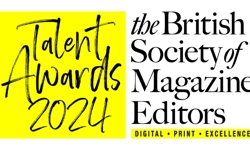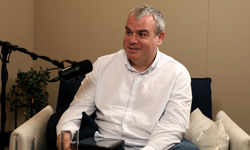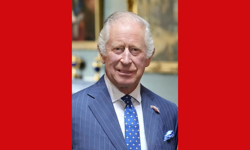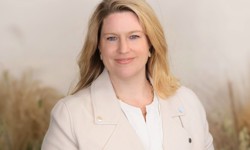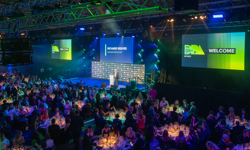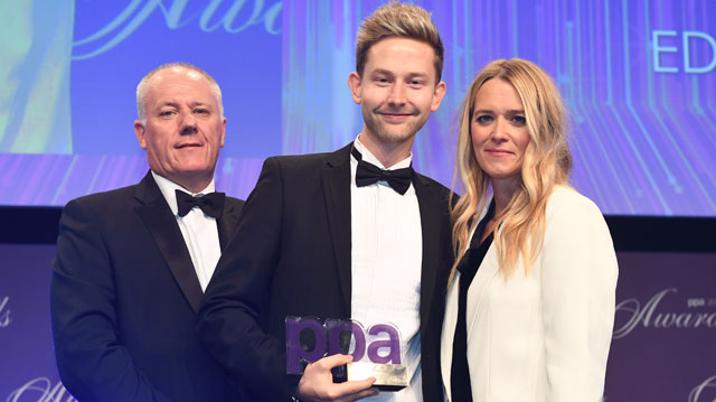
Edie, the sustainability information brand, has undergone a transition. No longer does the website and events brand simply reflect the industry it covers, edie has now become a key player in the sustainability and energy sector, according to its award-winning content director, Luke Nicholls.
This is thanks in large part to edie.net’s ground-breaking Mission Possible campaign encouraging businesses to make public pledges towards a more sustainable future. Nicholls explains: “Mission Possible is essentially our transition as a brand; it’s allowed us to move from a news website that reflects what’s going on, an informer and reflector of the industry, to breaking that mirror and being a part of the industry.”
Make a pledge
The Mission Possible campaign was the focus of the brand’s main conference, edie Live 2018. The conference had a “narrative” based around edie’s Mission Possible report into the key challenges faced by businesses trying to create a more sustainable future. Nicholls came up with the simple idea of a ‘Pledge Wall’ where businesses could write commitments on a post-it note and stick it onto a wall at the edie stand. This proved such a success, with over 100 pledges made, that Nicholls decided to take the concept to the next level with a virtual pledge wall on edie.net.
He says: “I started thinking about how we could build it into a digital version. At the same time, I’d been putting out feelers with various organisations into whether they would be interested in partnering with the campaign. One of those was the UK government. I managed to connect with the right people within the Department for Business, Energy and Industrial Strategy. They really liked the Mission Possible campaign.”
The upshot is that as part of their Green Great Britain Week in October, the department teamed up with edie as the main outlet for UK companies to make new commitments to clean growth. Green Great Britain Week is set to become an annual event and Nicholls hopes that edie’s partnership with the government initiative will also become a regular fixture.
“I see it becoming a bit of a snowball effect. We’ve had big companies make commitments, then seen rival companies making commitments. The hard work was all at the start, getting this off the ground and making people realise this is something to be a part of. Now pledges are feeding in and we’ve genuinely built up a movement,” says Nicholls.
It is thinking like this that helped win Nicholls the award for Publishing Innovator of the Year in the business category at the 2018 PPA Awards. The previous year, he was named New Editor of the Year at the PPA New Talent Awards at the age of just 26, when the judges described him as a “one-man powerhouse” for growing the audience of edie.net through innovative approaches to content.
edie.net delivers news, commentary and downloadable reports to around 69,000 registered users in the sustainability and energy sectors. Nicholls joined edie, published by the family-owned Faversham House, as editor of edie.net in 2014, moving up to become content director three years later. In his new role, he oversees the brand in all its formats including the website, large and small-scale events and sponsored reports.
Editorial connections
“We take a very content-led approach. That means for any session that’s being put on at an event, there should be some input from the editorial team. We’ve made a strong connection between editorial and other aspects of the brand; I think that’s a key point to our growth. The role I’m sitting in is the connection between sales and events and editorial. It’s nice to see that the content is being better valued at our events and we are getting stronger feedback. Our visitor score for edie Live 2018 was the best visitor score we ever had,” says Nicholls.
Some of Nicholl’s innovations have been simple but effective, such as setting up a spreadsheet so that all of the different areas of the business – editorial, events, marketing and sales – know what is coming up.
“What we were lacking was one single place where any member of any department could see what content is coming up on edie in any given month. Things were getting lost or forgotten about. What the content plan did was fully map out the next eighteen months. It’s amazing that sometimes a thing like that which doesn’t exist can lead to cohesion between the teams,” he says.
In the club
Other innovations require more time and investment, such as edie’s two networking clubs. The first of these, the Sustainability Leaders Club, was launched in 2015 and now has 300 members, who are invited to free quarterly networking events and also receive exclusive access to edie reports. This was followed in 2018 by the Energy Leaders Club, which has already grown to 150 members.
“We’ve built up a real personal level of engagement with these people. Once you’ve got that, the editorial team have direct connections. There was a point where we weren’t engaged with that audience and we weren’t able to get that level of speaker at our events,” says Nicholls.
Membership of the clubs is either by invitation or application. Nicholls personally vets the applications to ensure only senior sustainability professionals can become members and vendors and suppliers don’t creep in. “It’s about offering sustainability leaders a networking-based community that allows them to come together. The great appeal of it is they’re not sold to in these clubs,” he says.
However, it is the vendors into the sustainability market who currently provide edie with revenue. Nicholls explains: “If our end user is a sustainability manager then usually they are the people who within businesses are responsible for purchasing equipment, or technologies that will help their business become more sustainable. Our business model is connecting vendors of those technologies with this key audience of sustainability and energy decision makers.”
There is a dedicated suppliers’ hub on the website where users can find suppliers’ news. Suppliers pay for a position in this directory and there are also opportunities to sponsor events, webinars and reports, which are becoming an increasingly important source of income. The Mission Possible report, for example, was sponsored by E.ON.
Free vs Paid
At present, access to edie.net is free, although users must register to read more than three articles on the site per month. Nicholls has not ruled out charging for access in the future. He says: “I think the logical next step for us would be to look at that, now we have started developing much more engaging content, now we’ve got a real reason for someone to come to our site over others in this market. Is there reason enough for a sustainability or energy manager to pay for that quality and depth of content we now offer?”
The leaders clubs have been key in building this level of engagement. “One of the learnings is, if you really want to grow your brand and grow engagement with the brand, start with that core audience group. Five or ten members who you definitely want to visit the site – start with them and their wants and their needs, because chances are their wants and needs are going to match the wider market that you’re trying to grow. If we didn’t have those clubs in place, I don’t think edie would have seen the growth it’s seen in the last few years.”
Taking a lead
When it comes to sustainability, it is important that edie practices what it preaches. The company was the first to put up commitments on its pledge wall. These came out of an environmental task force, set up across Faversham House, which also publishes titles such as Utility Week. They include reducing emissions across the company by 10 per cent over the next five years and serving sustainably sourced food at all Faversham House events. At its recent Sustainability Leaders Forum, edie partnered with the McCartney family’s Meat Free Monday campaign to provide vegetarian-only catering. “It’s interesting when the boot is on the other foot, because it’s about changing behaviours. It’s a job to do it and ensure it stays done,” Nicholls admits.
For a small title operating out of rented office space near East Grinstead station, edie has benefited from the area it covers becoming a hot topic both nationally and internationally, with the need to reduce plastic consumption and live more sustainably hitting headlines daily. “It’s an opportunity to show we are in the frontline of this. The obvious one is the plastics debate. The good thing is we’re already there; we’ve already been having this discussion with businesses for years,” says Nicholls.
But while stories in the mainstream media are often critical of businesses for failing to become more sustainable, edie takes a more positive approach. “What we are able to do is get under the skin of the people who are actually having to deal with this stuff. We don’t come at it from the same consumer angle, we find out what’s going on in that business, how they are adjusting to it. You rarely find a business that you speak to about an issue like this which is just not taking any action,” says Nicholls.
When the plastics debate came to the fore, edie responded by producing a sponsored report proposing solutions, as well as devoting a session at edie Live to “Solving the plastics problem”. Nicholls says: “That’s where we’ve got an advantage. I can pick up the phone to the head of sustainability at Co-op. All these people are members of our Sustainability Leaders Club. I can catch up with them over a beer at our next drinks event and find out what’s going on.”


